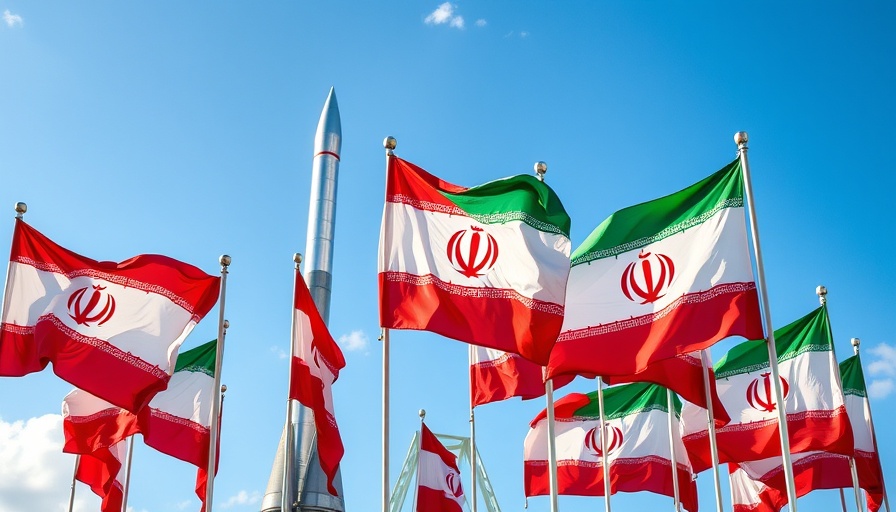
Iran's Nuclear Ambitions: A Global Concern
Iran has significantly accelerated its efforts to develop nuclear weapons, stirring anxiety among various global players, particularly in Israel and Western nations. Recent reports indicate that Iran may have obtained materials and technology essential for this progression, raising fears of a potential nuclear arsenal in the region. This move not only threatens Middle Eastern stability but also poses risks of escalating military tensions that could involve other nations, including the United States.
Understanding the Stakes: Why Should Christians Care?
For mission-minded individuals and humanitarian-focused Christians, the developments concerning Iran's nuclear ambitions are critical. The Iranian government's policies often conflict with documented Christian rights and freedoms, making the implications of a nuclear-capable Iran a pressing issue for advocates of social justice and religious liberty. A nuclear escalation could threaten not only regional stability but also disrupt the peace necessary for interfaith dialogue and humanitarian efforts in war-torn areas.
Historical Context: Iran's Nuclear Journey
The road to Iran's nuclear program has been long and fraught with contention. Since the 1970s, Iran has pursued nuclear technology under the guise of peaceful purposes. However, concerns have risen from its secretive advancements and lack of transparency regarding its enrichment activities. Historical incidents, including the 2015 Iran Nuclear Deal, illustrate the complexities of diplomatic efforts aimed at curtailing this threat while respecting Iran’s sovereignty.
Future Predictions: What Might Happen Next?
Analysts suggest that if Iran successfully develops nuclear weapons, it could lead to a regional arms race, with neighboring nations, including Saudi Arabia and Egypt, potentially seeking similar capabilities. This scenario could destabilize an already volatile region further. Additionally, increased sanctions or military actions could be triggered, exacerbating situations that harm ordinary citizens, particularly the persecuted Christian communities in areas affected by conflict.
Potential Counterarguments: Weighing Diverse Perspectives
While many see Iran's nuclear aspirations as a threat, others argue that acknowledging Iran's sovereignty and engaging in diplomatic talks is vital to achieving a peaceful resolution. Some analysts advocate for understanding the socio-political pressures the Iranian regime faces as a means of addressing the underlying causes contributing to its pursuit of nuclear capability. Engaging with these counterarguments provides a more nuanced view of the situation.
Call to Action: A Need for Advocacy
As globally aware Christians, it is imperative to engage with these unfolding events actively. Advocating for religious freedoms and supporting humanitarian efforts must remain at the forefront. Join us in praying for peace, and consider how you can support organizations that aid persecuted Christians in the Middle East.
 Add Row
Add Row  Add
Add 








Write A Comment